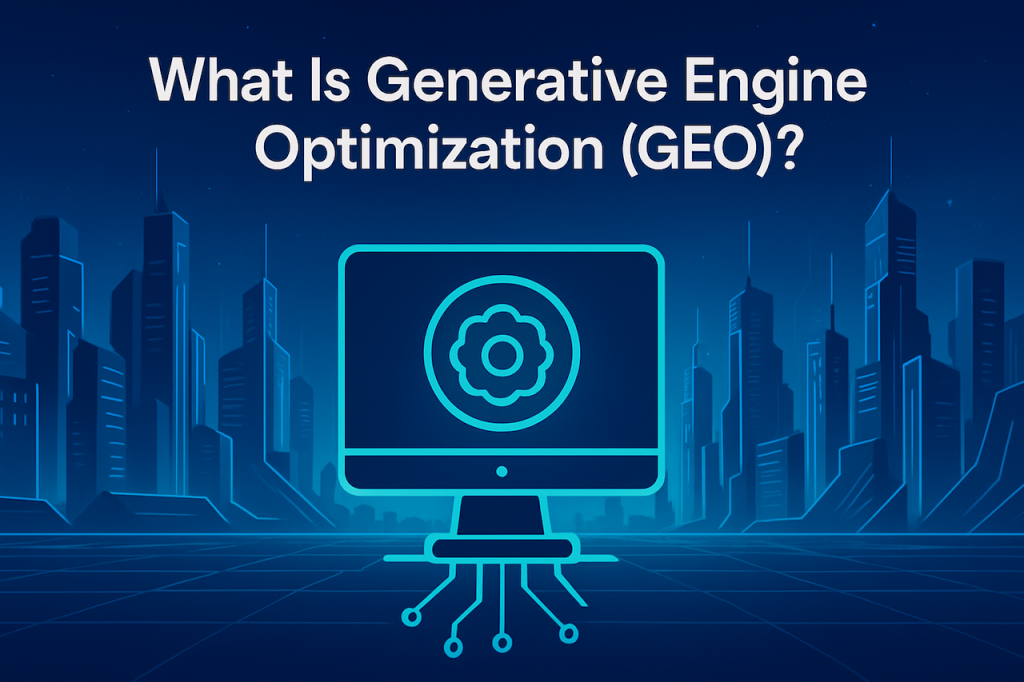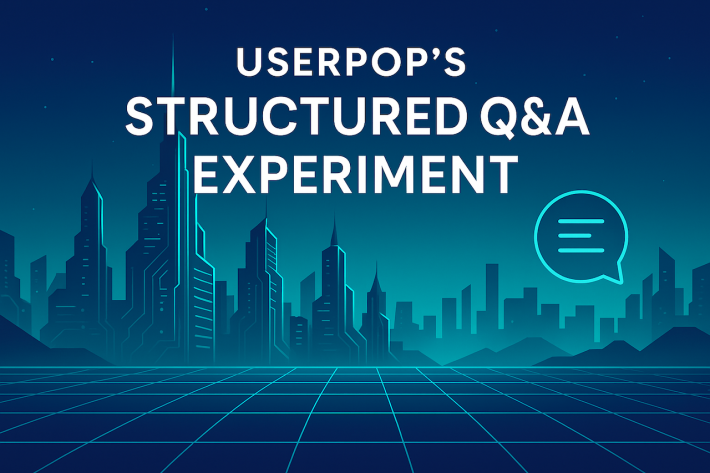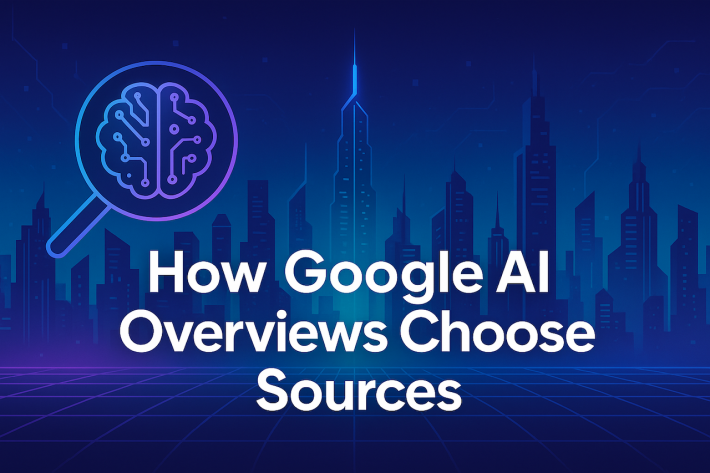What Is Generative Engine Optimization (GEO)?

The future of visibility isn’t about keywords — it’s about knowledge.
Generative Engine Optimization (GEO) is the evolution of SEO for the AI era.
While search once revolved around keywords and backlinks, generative engines like Google’s AI Overviews, ChatGPT, and Perplexity are built to understand meaning, not metadata. They don’t crawl for strings of text — they interpret knowledge.
GEO is about optimizing your content not for search crawlers, but for language models — the systems that summarize, reason, and cite sources in generative results.
At Userpop, we’ve been running structured Q&A experiments to understand how content format, schema markup, and topical depth influence a brand’s visibility in these new AI surfaces. The early results are clear: structured, factual, interconnected answers outperform static content.
Why GEO Matters Now
Search behavior has changed forever.
When someone searches “best moisturizer for oily skin,” they no longer want to click ten blue links — they want a direct, credible answer from an AI system that already knows the best options.
This shift from information retrieval to answer generation means brands must feed AI systems the context they need to understand their products.
Generative engines source their knowledge from:
- Structured Q&A content on trusted domains
- Rich schema markup that clarifies relationships
- Internal link structures that show conceptual hierarchy
Traditional SEO tells Google what to rank.
GEO teaches Google what you know.
How GEO Works
GEO isn’t mysterious — it’s the logical extension of structured data and content design.
Here’s the process:
- Identify high-intent questions your audience asks before purchase.
- Answer them directly on your own site (not in PDFs, not on social).
- Apply structured data — FAQPage, QAPage, or HowTo schema.
- Interlink your answers to form a connected web of knowledge.
This creates what we call the Knowledge Layer — a machine-readable foundation that generative engines can interpret, cite, and learn from.
GEO vs. SEO
| Traditional SEO | Generative Engine Optimization |
|---|---|
| Optimizes for keywords and backlinks | Optimizes for meaning and structure |
| Works in silos (blog, product pages, FAQs) | Works as a connected knowledge graph |
| Success = rank | Success = citation |
| Measured by CTR | Measured by retrieval visibility |
GEO doesn’t replace SEO — it completes it.
Search engines still rank; generative engines summarize.
The Role of Structured Q&A
When you structure your answers, you make them machine-parsable.
That means an LLM (Large Language Model) can extract facts, relationships, and confidence weights from your page — the prerequisites for citation.
Userpop’s experiment on structured Q&A explores how schema-enriched answers impact both organic ranking and AI Overview inclusion.
The Knowledge Layer Advantage
Generative search has rewritten the rules of visibility.
In the SEO era, authority came from backlinks.
In the GEO era, authority comes from structured understanding.
The brands that win are the ones that publish knowledge in a format machines can trust — factual, connected, and self-updating through community Q&A.
GEO isn’t about gaming algorithms.
It’s about teaching them.
And your Knowledge Layer is the curriculum.
Related Reading
Justin Shum is a 2x exited founder who has built and scaled companies at the intersection of messaging, proptech, and commerce. Today he is the founder of Userpop, creating the intent signal infrastructure that powers visibility and trust in the era of generative search.


